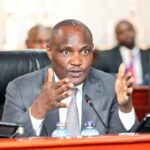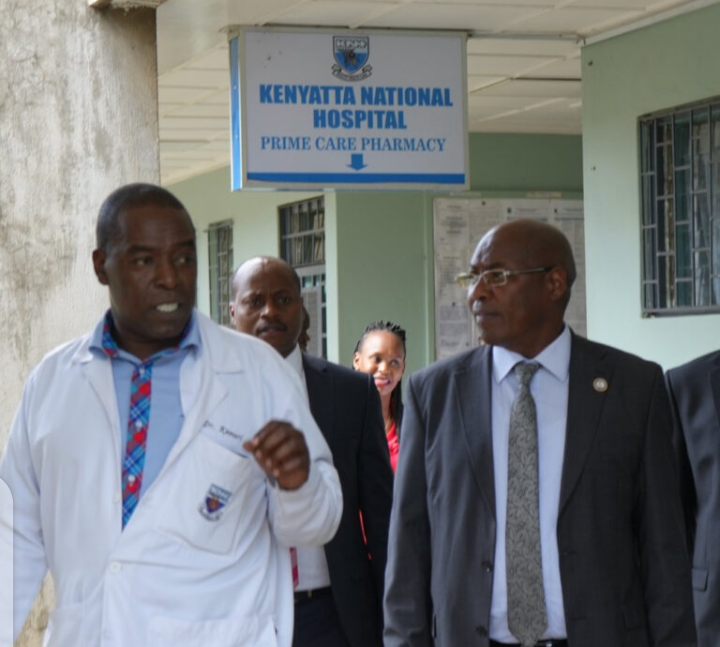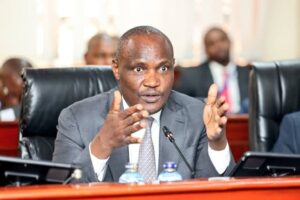Principal Secretary of Medical Services Harry Kimtai has found himself embroiled in a complex corruption investigation spearheaded by the Ethics and Anti-Corruption Commission (EACC).
The investigation focuses on the alleged Sh634.4 million fraud involving the chief executive officer of Kenyatta National Hospital (KNH), Dr. Evanson Njoroge Kamuri.
Dr. Kamuri is at the center of this probe, with his financial activities coming under intense scrutiny. The EACC has successfully obtained court orders to freeze two of his bank accounts, which collectively hold Sh28 million.
These accounts, housed at Housing Finance Company (HF), are now subject to detailed investigation as the anti-graft body seeks to uncover the extent of the alleged corruption and procurement scams.
The court’s decision to grant the EACC access to Dr. Kamuri’s bank accounts is a significant step in the investigation. It allows the EACC to obtain and review critical financial documents, including account opening documents, statements, cheques, deposit slips, and payment vouchers.
This access is crucial for the EACC to piece together the financial transactions that may reveal evidence of corruption.
The request to access these documents was made by Mr. Paul Mugwe, an investigator with the EACC. Mr. Mugwe’s application highlighted the necessity of these documents to understand the flow of money in and out of Dr. Kamuri’s accounts.
The detailed examination of these documents is expected to shed light on whether the funds in question were obtained and utilized through corrupt practices.
This investigation is part of a broader effort by the EACC to combat corruption within public institutions in Kenya.
The case against Dr. Kamuri underscores the challenges that come with addressing high-level corruption in critical sectors such as healthcare.
The involvement of senior officials like Harry Kimtai further complicates the matter, as it indicates a potentially deep-rooted issue within the medical services sector.
As the investigation progresses, the EACC’s findings will be closely watched, not just for the implications for those directly involved, but also for what it reveals about the systemic issues in public sector governance in Kenya.
The outcomes of this probe could lead to significant reforms and heightened accountability measures within the country’s medical services and other public sectors.
The freezing of Dr. Kamuri’s accounts and the scrutiny of his financial records mark the beginning of what promises to be a rigorous and thorough investigation. The public and stakeholders within the healthcare sector will be keenly observing the developments, hopeful that justice will be served and that any illicit activities will be appropriately addressed.





















Add Comment